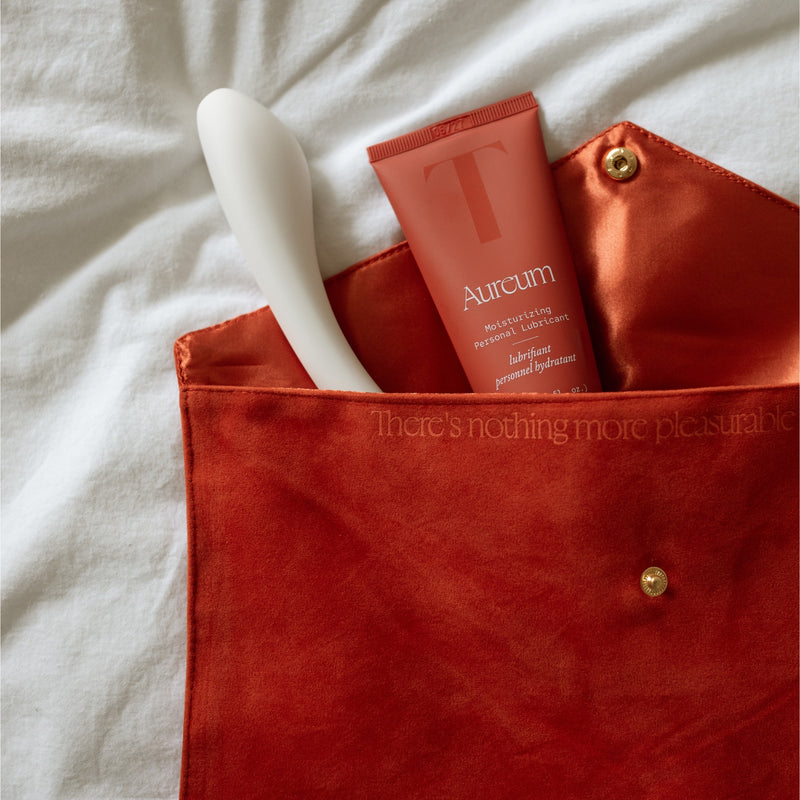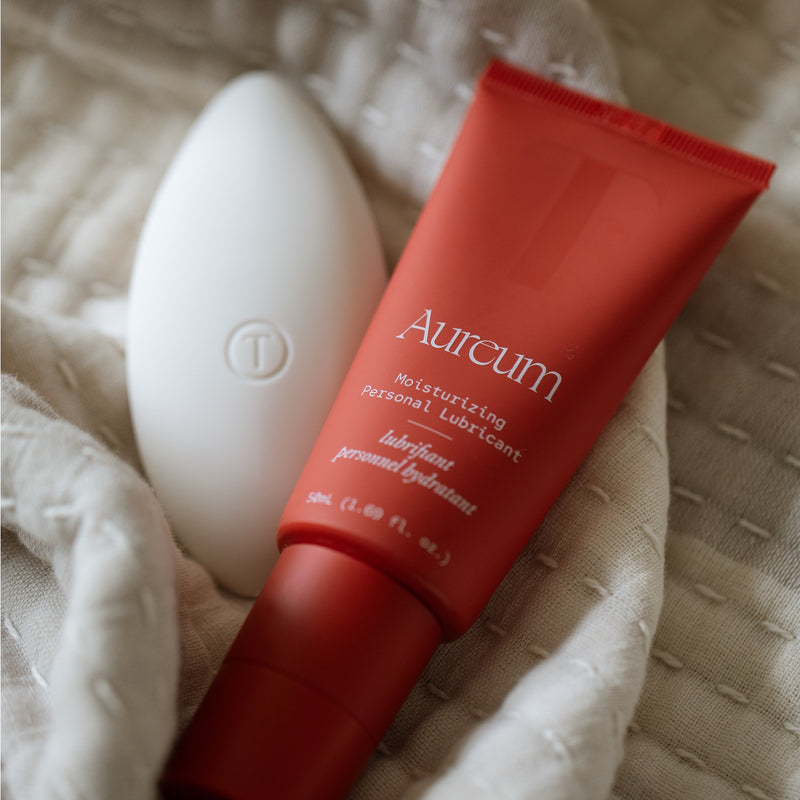Q&A with Heather Fraebel | Pelvic Floor Physical Therapist
What does physical therapy have to do with menopause? We sat down with Heather Fraebel (virtually of course) to find out. With a specialization and passion for pelvic floor health, Heather helps women use their own bodies to overcome everything from vaginal atrophy to urinary incontinence.
How would you describe pelvic floor health?
The pelvic floor is a large region of the body that is often forgotten about. It’s a band of muscles that makes up the bottom boundary of our core. These muscles support our uterus, bladder, and colon, and play a role in our urinary, gastrointestinal, and sexual systems. Meaning, defecation, urination, and sexual activity are all impacted by the functioning of our pelvic floor. And it doesn’t stop there. The pelvic floor is attached to our hips and lower back and can affect the function of both (I often see patients with low back pain where a pelvic floor dysfunction is the culprit). Pelvic health is so interesting to me because it’s holistic. It’s influenced by so many things, from physical factors and nutrition to stress, hormones, and more. In my view, pelvic health deserves more attention than just the five minutes a year you give it during that gyno exam.
How can physical therapy impact menopausal symptoms?
Physical therapy can help improve vaginal dryness/vaginal atrophy, pain with sex, urinary incontinence or frequency, fecal incontinence, uterine/bladder/rectal prolapse, osteoporosis, and more – all of which can result from menopause. To take vaginal dryness and resultant painful sex as an example, in physical therapy we would work on improving blood flow and gland secretion with manual work (yes, massage) to the pelvic floor. We would address muscular tightness and knots (yes, many women have knots in the muscles of their pelvic floor) with manual work, breath work, and targeted stretching. Then, we would strengthen the muscles that require strengthening. A quick word on strengthening: your pelvic floor is so much more than a Kegel to cure all. Our pelvic floors consist of slow twitch and fast twitch muscles, so both endurance and ‘quick flick’ contractions need to be built up and trained. A standard Kegel simply doesn't do the trick. Also, I see so many women that don’t even need Kegels in the first place! A majority of us actually have a pelvic floor that is too tight and turned on (muscular wise, not sexually...) resulting in weakness due to fatigue. All this to say, each pelvic floor is unique and requires individualized care and attention. And it’s important to reach out for help. With my patients, most menopause-related issues are resolved in about 4-6 sessions of physical therapy. These issues you once thought you’d deal with the rest of your life can often be solved in about a month and a half.
How can physical therapy support women emotionally during “The Change”?
Physical therapy is an empowering place. Too often we only get a few rushed minutes with doctors and those few minutes don’t give us enough time to bring up uncomfortable issues. A physical therapy visit is often the first experience women have with a care professional where they feel heard. We have time to really listen to people and look at them as a whole person. And as pelvic physical therapists, we treat women’s taboo issues all day long. Realizing you’re not alone can be a very validating experience. I remember my first experience at pelvic physical therapy for chronic UTIs and painful sex. I left my first visit almost crying due to how cathartic and empowering it felt to be listened to, told what I was experiencing didn’t have to be normal, and that I could do something about it with my own body. Despite all the clinical doctors I had seen, I hadn’t felt heard anywhere else.
What do you think is the greatest misconception about menopausal care?
What you are experiencing in complications due to menopause may be common, but they are definitely not normal. Too many women accept this idea that we just have to ‘live with’ changes that happen during menopause. No, you don’t have to accept incontinence. No, you don’t have to stop having sex after you go through menopause. No, your vagina doesn’t have to be dry the rest of your life. Menopause is not the end.
How does menopause impact sex?
Physically, the largest contributor to sexual function during and following menopause I believe is vaginal dryness/atrophy. As estrogen dips through menopause, your vaginal walls can become drier, thinner, and inflamed, and boy that sounds like the total opposite of what you want your vagina to be like during sex! With less lubrication, sex is far less comfortable. But even greater than the initial physical symptoms is the sequelae of symptoms. Even after one painful/uncomfortable sexual experience due to dryness or atrophy, our minds and bodies react—we begin to associate sex as this uncomfortable thing, and not just in our mind. Your body, namely your pelvic floor, may begin to physically tighten up at the initiation of a sexual experience due to its previously uncomfortable experience. This can result in pelvic floor hypertonicity, or tightness of the pelvic floor muscles, that will make penetration even more uncomfortable and challenging. Physical therapy can help you loosen your pelvic floor, create a plan to reverse a negative association (both physical and mental) with intimacy, improve natural lubrication, and can even help boost estrogen. The more sex you have, the more estrogen will be coursing through your body. Menopause only has to influence sex if you let it.
What keeps you motivated to do what you do?
The empowerment. I get so jazzed up seeing women feel empowered again. Success stories are great, but what I care about most is seeing women take back their bodies, minds, and lives. Women don’t talk about so many ‘taboo’ issues. Seeing people open up about things they haven’t confronted before and realizing they have the power in themselves to change – that just drives me. I get to be a part of something like that every day. If a woman is in my office, I’ve already won. It’s all the silent women still out there that motivates me to continue to educate, speak up, and reach out.
Have you ever talked to your mother or grandmother about menopause?
You know, despite all the nitty gritty taboo issues I discuss daily with patients and the amount I’ve opened up about my own previous sexual and hormonal issues – I have never talked to my mom about her experiences with menopause. My relationship with my mother regarding sexuality is a rocky one. For so long, I felt she didn’t approve of my career and my general openness about these sensitive areas of women’s health. Even as she’s come around to my passions, she still avoids those more personal discussions. To be honest, all I got from my mother regarding menopause was, “here’s these tampons I don’t need any more.” Come to think of it, I am disappointed in myself and am going to make a commitment to talk to my mom about her menopause experience. Sometimes it can be so easy to ask strangers about these things yet so hard to ask our loved ones.








